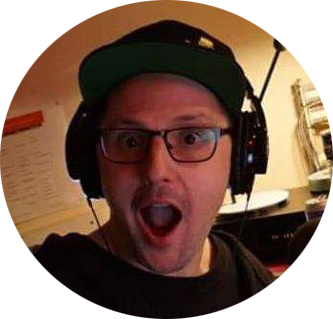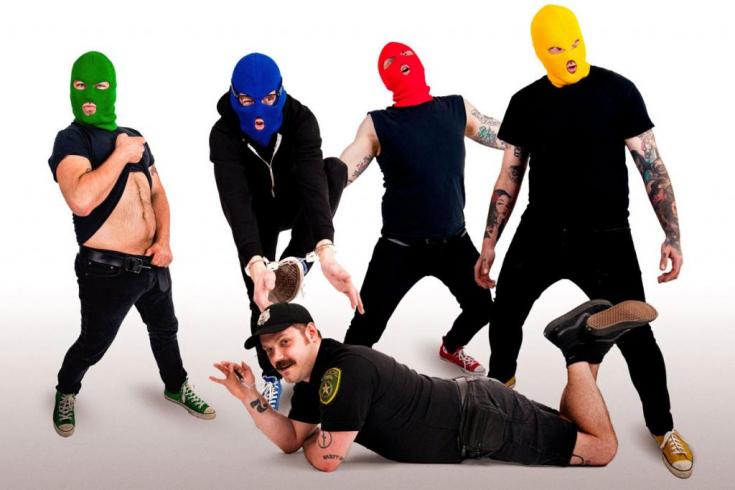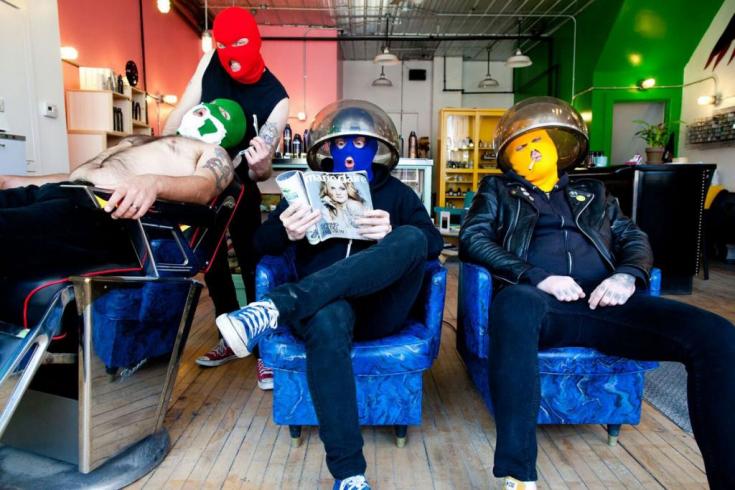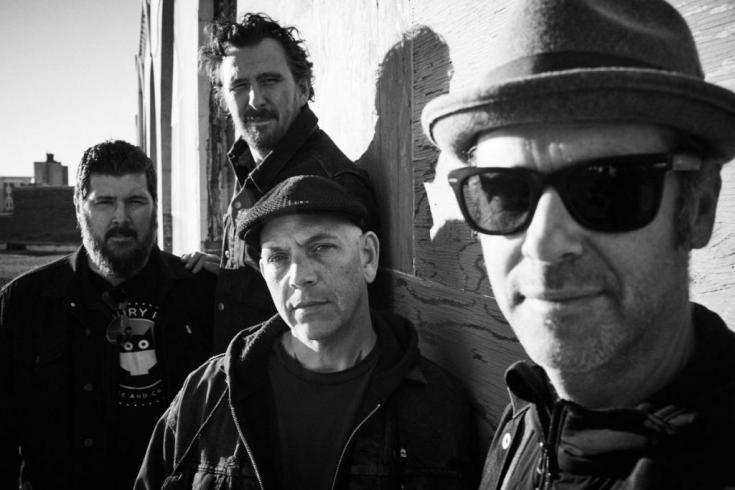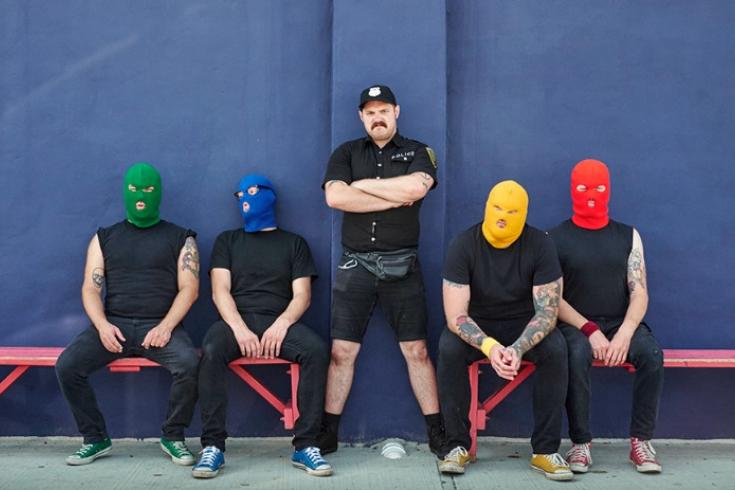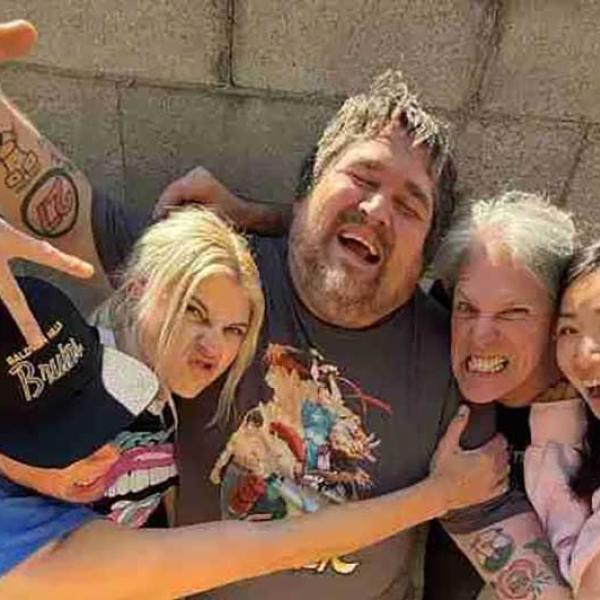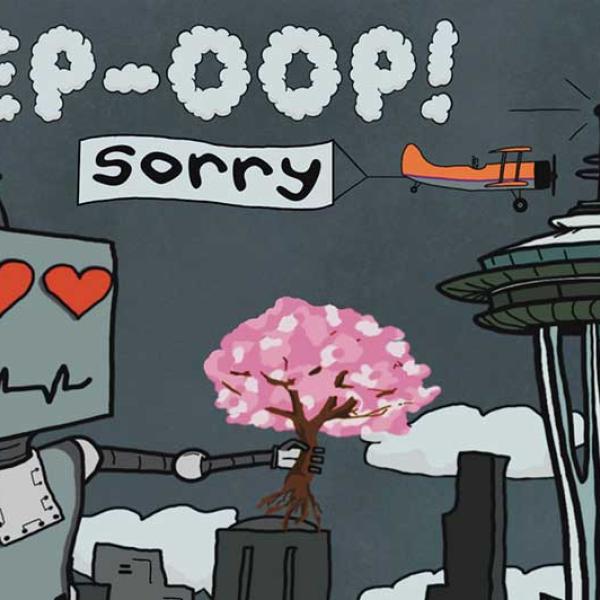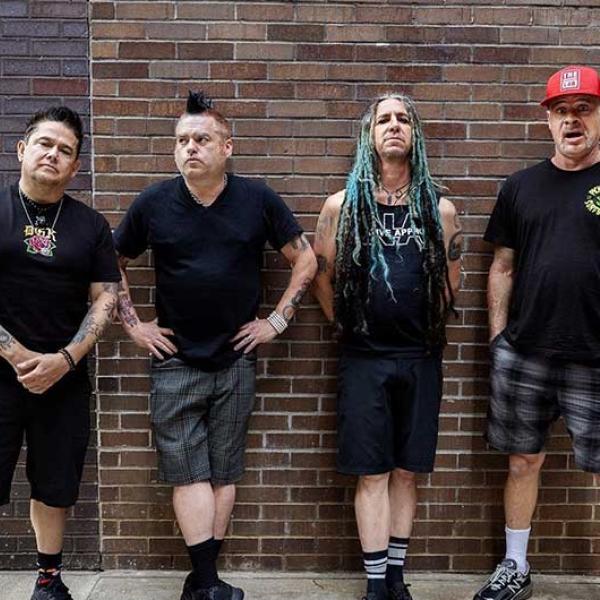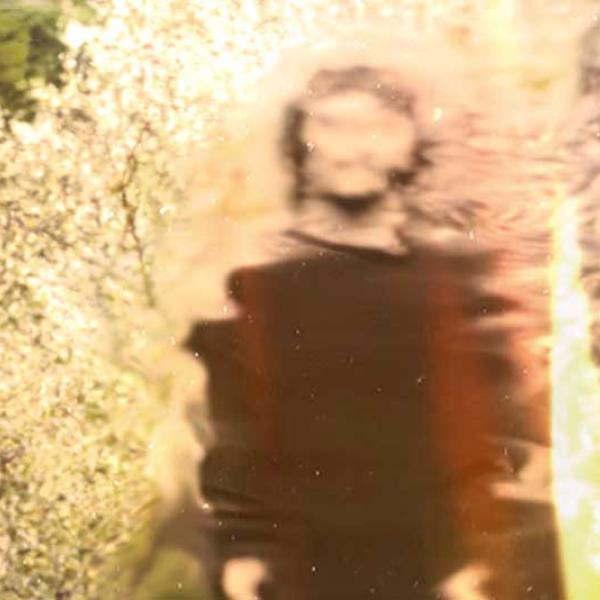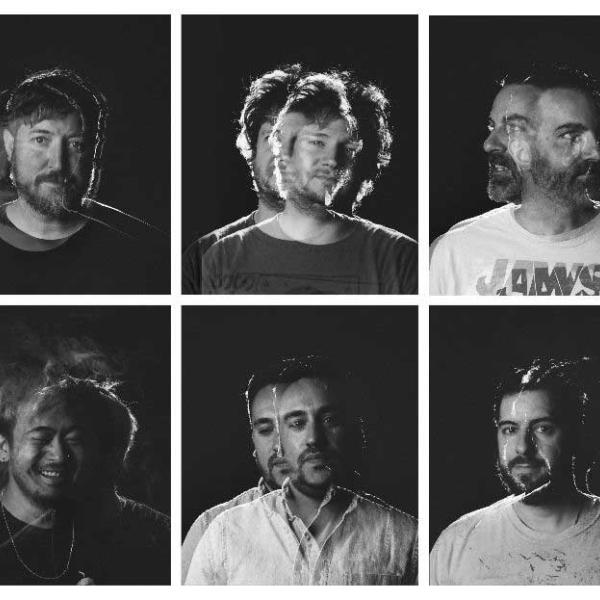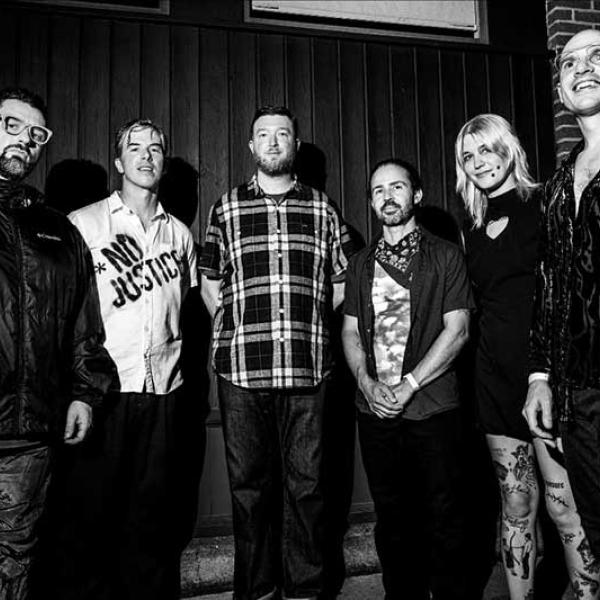Features
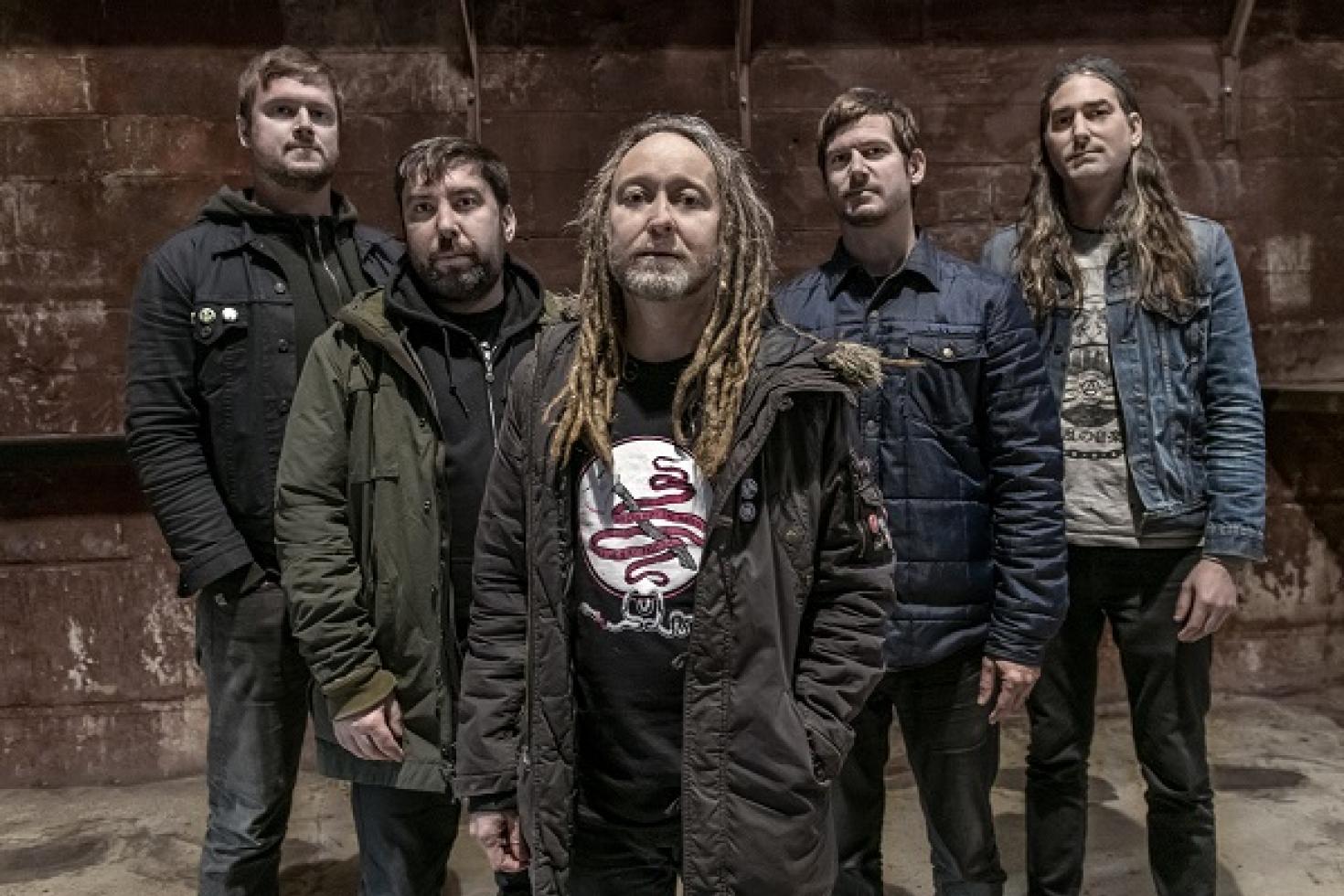
Ever since forming in 1999 after his previous band Inquisition threw in the towel, the political punk powerhouse that is Strike Anywhere has been ragin against ignorance and intolerance. And while they never stopped spreading their message by playing shows all over the world, we had to wait until now for the band to finally release new music in the form of the 'Nightmares of the West' EP, out now on Pure Noise Record. We sat down virtually with Thomas Barnett, one of the nicest frontmen around and definitely not afraid to speak his mind.
PRT: Did you do a lot of interviews today?
Thomas: Yeah, but it is good talking to you again and you are the only Canadian, everyone else was German. So, what’s up with you? What is Quebec city like now? Do you have shows at all?
PRT: We have some virtual shows and local shows where you can sit and keep your distance from one another. As for the future, maybe artists will perform a show every day for three days for example. That way they can do a show with smaller crowds and everybody can keep their distance.
Thomas: That’s interesting. I was talking to our booking agent. She books our shows for all of our lives. So I ask her how are we going to do shows again? How are people going to keep their distance? All those questions, you know. We definitely don’t feel like we are going to do this if there is a situation where people can’t be free to move and are afraid about getting sick. We would want to avoid having to put people in that position. Also if you have seen us play, you know it’s not possible for us to play and not also be in the crowd and be with people.
PRT: You definitely are one the most energic punk bands out there. Which brings us to the question... why put out a new record now without the prospect of playing live shows?
Thomas: We feel crazy putting out a new record when there is no potential of doing shows that we know of, to support the songs. Obviously we didn’t plan this. But there is something about it that is interesting. I definitely miss playing and I miss my band mates and all that. But it’s good to have a new record and new songs all the same. Because you know, people have a lot of time now to listen to music. There’s not a lot else to do. Tell me are you still working, do you still have a job?
PRT: Yes, I’m working from home. It was fun maybe the first month. With the kids around it’s hard to concentrate, but I’m happy to have more time with them. I’m lucky to work and since it’s hard for the local economy, I try to spend my money in local enterprises. I drink and eat local.
Thomas: It’s a strange time. In my community, everything is local. People are looking out for neighbors, trying to figure out what people need. I think in some way it’s fed into the protests because mutual aid is in the air. We can’t trust our federal government to give a shit about us or to even believe in facts. In some way, the mask is off. All the things that we’ve been talking about, the function of society, really just come down to the people. And they always have. And all the propaganda, state institutions, militarized police... all of that has been getting in the way of people taking care of each other. I think the corona virus has something to do with the reason why these protests are so large and sustaining for so long. And why everyone is like oh wow, we know how to do this we can be a community. The idea that there’s an autonomous zone in Seattle with a medic tent for example, is inspiring. But yeah, it’s terrifying too.
We are on the edge of civilization in some ways and it’s down to us to have the values, discipline, and love. Because without that, it is just Trump and the militarized police force and it will become a dictatorship or something worse. Obviously, every country is different from other countries. And America is fairly unique because of the mythology of who we think we are versus the reality of who we are and can be. They are really far apart. In Canada, you guys don’t have the level of propaganda that we have in America. Americans are either victims or heroes in every story. And it’s pretty... i don’t want to say infantile, but juvenile. Adolescent. Like, there’s a perpetual angry, horny teenager. That’s America. Other countries get to be grown ups and adults. But America’s culture, what we expect from our politicians and the way that we talk to each other, it’s the angry, horny teenager all the time. Maybe now it’s the moment to grow up.
PRT: Like the teenager that keeps doing stupids thing to get laid and then realizes afterwards he just had to be himself.
Thomas: America has been avoiding its growing pains because of wealth and because it has such a high self-regard as a country. But now, we must face our imperfections, our original sins, and realize how dishonest our history has been to itself. The way we portray our involvement in the world. Again, it’s constantly as heroes. We have oversimplified it to the point where we are now having crisis after crisis. It’s time for a reckoning. We have to remember that all this - these streets, these monuments - belongs to the people, that history belong to the people and that the future belongs to the people. That’s what I think this moment is teaching everybody.
The right-wing who are afraid of it, they have a lot of issues. A friend of mine was saying to me that these are America’s daddy issues right now. Trump is sort of like the abusive father that no one wanted or needed. But, for people that do have problems in their lives and feel victimized, Trump is there to infect them with his nonsense. I guess it’s about the numbers, how many people have peeled away from Trump and how many will stay with him. I guess we’ll find out in the election.
This was a critical mass. There was just too much evidence to ignore and we are not going back. Of course the state is going to overreact and do their damage, but it’s not just a small group of already political activists. It is whole communities, it is everybody. It’s so many people and it’s global now thanks to instant global communication. This wouldn’t have happened without the digital age. Everybody has a camera and can instantly broadcast what they are going through. It’s going to make us more moral and more truthful. And I know the internet is full of nonsense, hatred and deep fakes. But watching videos of police brutality, refugees... it’s real and it’s as close as we can be right next to these people all over the world and seeing their struggle and their pain. So I hope that George Floyd was the final horrific act of racist police brutality.
And i do think that the shelter in place and the pandemic had something to do with it as well. People have more time to think and to realize that we are in a community. We are not in our little bubbles, going to work and then going home, going to that bar or this bar, liking this sports team or that sports team. No, we can’t go to sports and we can’t go to bars. We just have to be here with our neighbors and work out our problems.
PRT: On 'Nightmares of the West', the lyrics really reflect the way I think about the world. It’s a solid album and it feels like it has come at the right time.
Thomas: Thank you, Eric. I appreciate that. We needed to do it ourselves and we needed to put out the songs. We didn’t know if anybody would remember us because it has been a long time. We played shows occasionally, did little tours, but we stopped really touring and living in the van back in 2012 so that we could have families and take a breather. I think it made our songwriting stronger because we felt passionate about those seven songs and wanted to put them out. I’m so glad that folks like it and that it can be something that maybe helps people get through these times and not feel alone. That’s the whole reason why we do it. Punk rock and hardcore are loud and intense music forms and we speak about things that people don’t speak about in public. But they should. We’re talking about political injustices, dishonest history, degraded economies degraded communites because of capitalism and culture. We also talk about personal things like psychology, grief and, depression. How to get through having a lot of bad days, how to go through losing friends.
All that stuff that’s in ‘Nightmare of the West’, we needed to say as people. We look at it as having a continuing conversation on each of our records with our audience, our friends, our peers in other bands. The record talk to each other in some sort of weird way. For us, it’s there that sense of doing a continual piece of art. It’s a two and halve minutes long punk song, but really it’s a 21 year long journey of writing 60 songs. It’s all kinda one thing for us.
Also, we were touring Europe, Canada and Australia last summer and it was crazy. We were playing these songs live and realizing that we are still doing this after all those years. And that maybe we should put out some new music. Just because we can. So we called Brian McTernan our friend and producer at Salad Days in Baltimore and we said ‘you’re not gonna believe this’. And he says ‘You have new songs?’. And then after that, he was not going to let us not do it.
PRT: It’s awesome. You don’t release a lot of records so when you do it is almost like finding a gem and I think you have a special place in a lot of people’s hearts.
Thomas: Thank you, that means a lot. The thing is we never know. We never know if we are going to put out something new, write more songs, record more songs or if we are going to play more shows. We are not talking about breaking up necessarily but we never take it for granted that this thing will happen again. So we kinda approach every show and every record like it could be our last. And I think that has worked for us. We don’t want to waste people’s time with another Strike Anywhere record. We want to make it worth the time it took for you to listen to it. We are keenly aware that we don’t do anything particularly different. All we have got is us and our perspective.
We are also kind of stubborn and not very good at doing a cycle of anything. So I think it’s important that our friends respect our timeline. Back in 2012 they were like ‘okay, it’s been two and a half years since Iron Front... where’s the next record?’. And we were just like no. 2016? No. 2018? Still no. It just has to feel right. We are not going to force anything and between me and my band mates, there just is like this particular territory in the mind that we can get out of each other and make sure it is honest and real.
PRT: So making a record is like surfing? You have to wait and then catch the perfect wave.
Thomas: Yeah, both of our guitar players are surfers and they will totally appreciate that.
PRT: It feels weird asking but what’s going to happen next for Strike Anywhere? I mean, next year will be a lot better than it is right now.
Thomas: (laughs) I hope so. I mean, there are ways it could get worse but they would have to get creative. But yeah, let’s toast to next year. Maybe we can all be together again and play shows. One thing is certain though, for the rest of our lives no one is ever going to take any of this for granted again. When there is a vaccine and we can all go out again, people are going to lose their minds. Like, we can go out and breathe on each other? And for now, I think it’s important that we stay positive and try and have fun with this even in the craziness that we are in.

